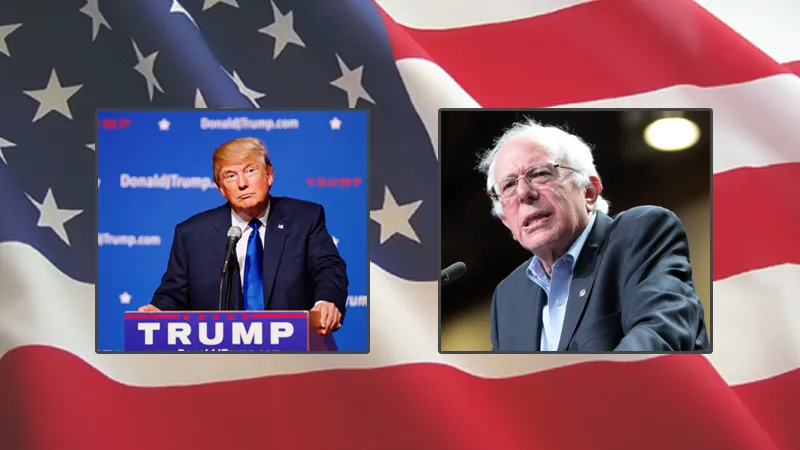
The year of a presidential election in the United States is always the most exciting year for political junkies. If I were to use a bad metaphor, I’d compare it to the Olympics. But 2016 is shaping up to be something even more spectacular, in every meaning of the word. This election cycle has seen a 74-year-old Democratic Socialist challenge the presumed front-runner for the Democratic nomination, and a loud talking, impolitic real estate tycoon turned reality TV host has led the Republican nomination fight for months. If anyone today says that they could have predicted where we currently are months ago, they are lying. There is nothing normal, status quo or usual about what is happening in our politics right now.
It’s a brave new world, and for those of us who follow politics closely it is both exhilarating and terrifying.
If there is one thing most people can agree on, it’s that this is the year of the anti-establishment candidate. Only in America could you have Bernie Sanders—a sitting U.S. Senator and elected official for over 35 years—be considered anti-establishment, but here we are. And on the Republican side, both Donald Trump and Senator Ted Cruz are running as outsider candidates, though again, one is a sitting senator and the other isn’t exactly an everyday working class man from middle-America. My feelings on what it means to be an anti-establishment candidate aside, clearly these candidates are tapping into a sentiment shared by many Americans: the idea that the working and middle class in this country are getting squeezed or left behind altogether.
Because of this one common theme, it’s easy to put the Sanders and Trump phenomena into the same box and call it a day. You see that happening with the media coverage in the U.S., and even Donald Trump has taken to likening his rise on the right to Bernie’s on the left. But that is lazy journalism. Yes, there are common threads running between their economic populism speeches, but to say that they are the same is insulting to Bernie Sanders and his supporters.
Donald Trump is tapping into economic anxiety, but he’s also exploiting something much worse. Since day one of his campaign, barely a week has gone by where Trump doesn’t say something extremely offensive about a large group of Americans. Whether it’s disparaging Mexican immigrants, saying sexist comments about countless women, likening the temper of an opponent to that of a child molester, or proposing a ban on all Muslims from entering the country, Donald Trump appears to be an equal opportunity offender.
And yet Trump’s poll numbers continue to rise. What does that say about the current state of the Republican Party? And what does it say about the American people at large?
When I travel out of the country, my friends and family can’t believe that this is real, that Donald Trump could actually win the Republican nomination. They question why there seems to be so much tension along racial lines when just 8 years ago we elected our first African American president. I would argue that it was naïve of anyone to think that electing President Obama would simply erase all of our race problems. It’s not surprising that the opposite appears to have happened.
But what IS surprising is that it appears to be OK for the leading candidate of a major party to stoke those tensions, anxiety and fears for political gain. And what is frightening is that no matter what Trump says, he never quite pays a price. If anything, his poll numbers among Republicans seem to get stronger after each incident.
At the end of the day, it is very important to remember that we are at the beginning of this process. The upcoming contests take us to very different states demographically and geographically. Not to mention, very few delegates have been awarded. A lot will change after the March contests, and possibly more so after that. But even if the eventual nominees end up being named something other than Bernie Sanders and Donald Trump, there will be no question that both will have left an impact on this campaign; for good and for bad. When historians write the chapter on the 2016 election, they will probably scratch their heads, thinking “what an unusual time in American politics.” They won’t be wrong.
Daniella Gibbs Léger, a former Special Assistant to President Obama, is Senior Vice President for Communications and Strategy at the Center for American Progress Action Fund. Follow her on @dgibber123.
The views expressed above belong to the author(s). ORF research and analyses now available on Telegram! Click here to access our curated content — blogs, longforms and interviews.




 PREV
PREV


